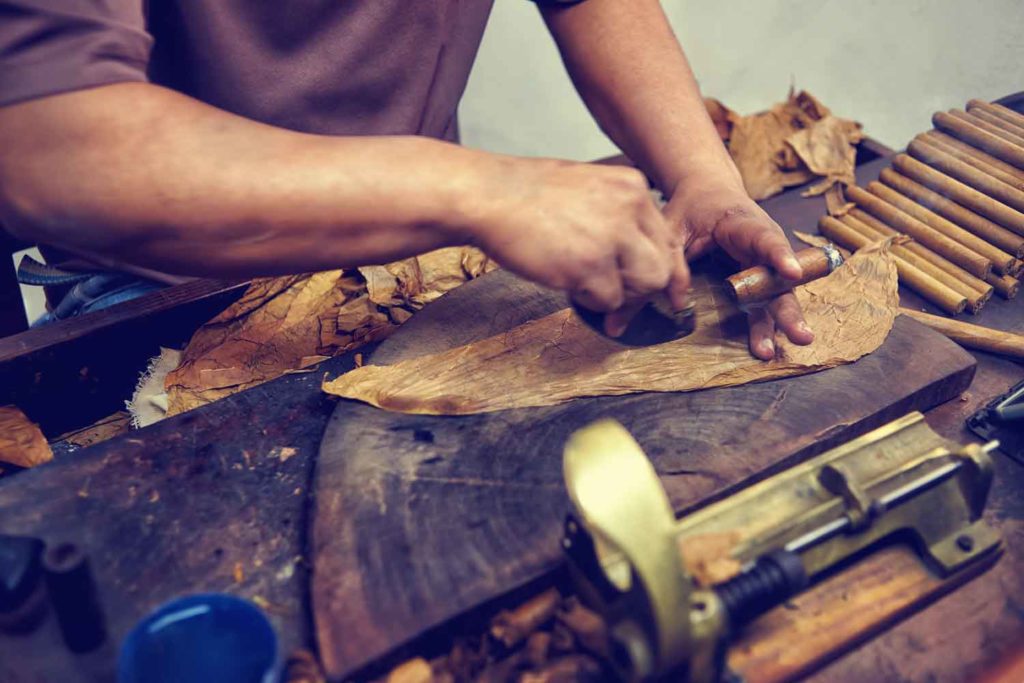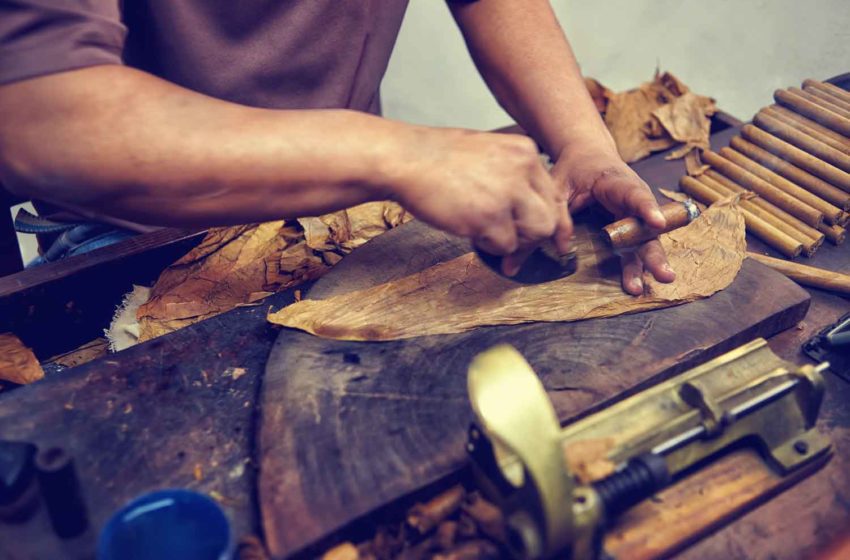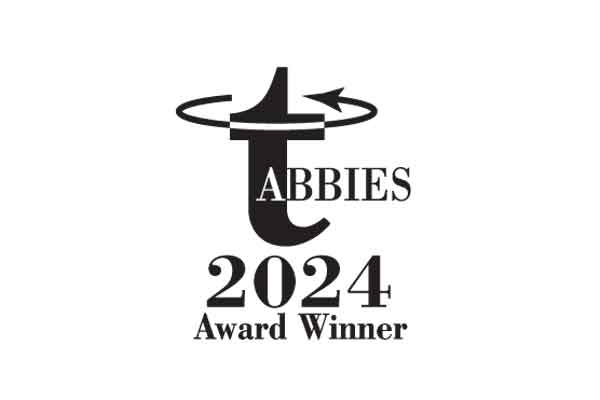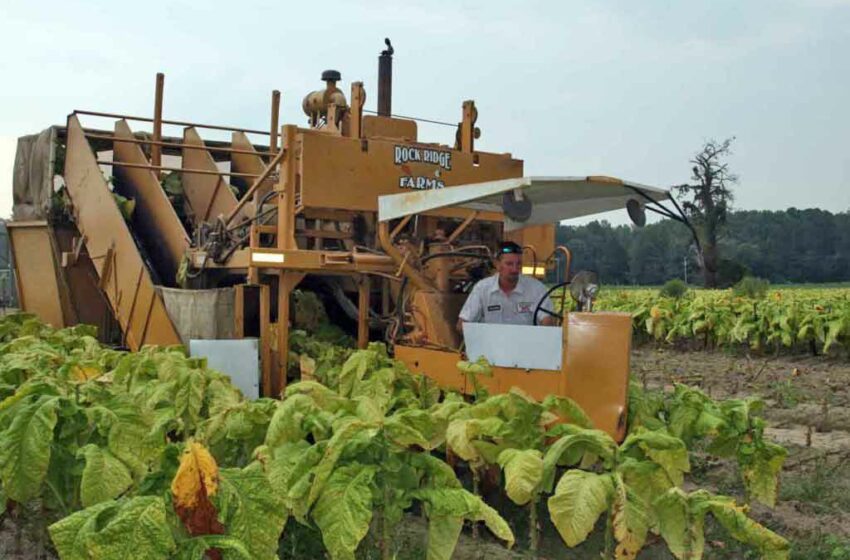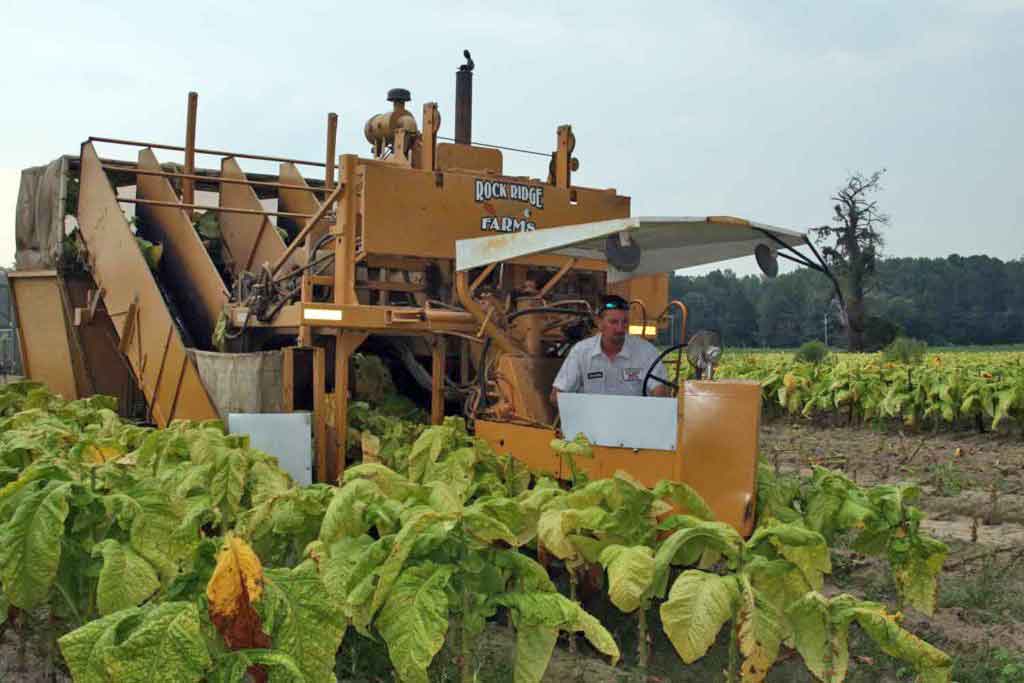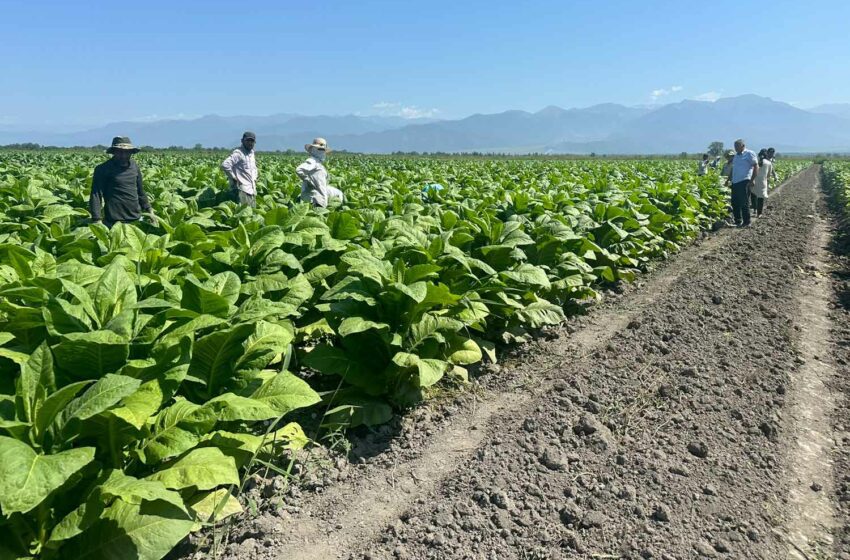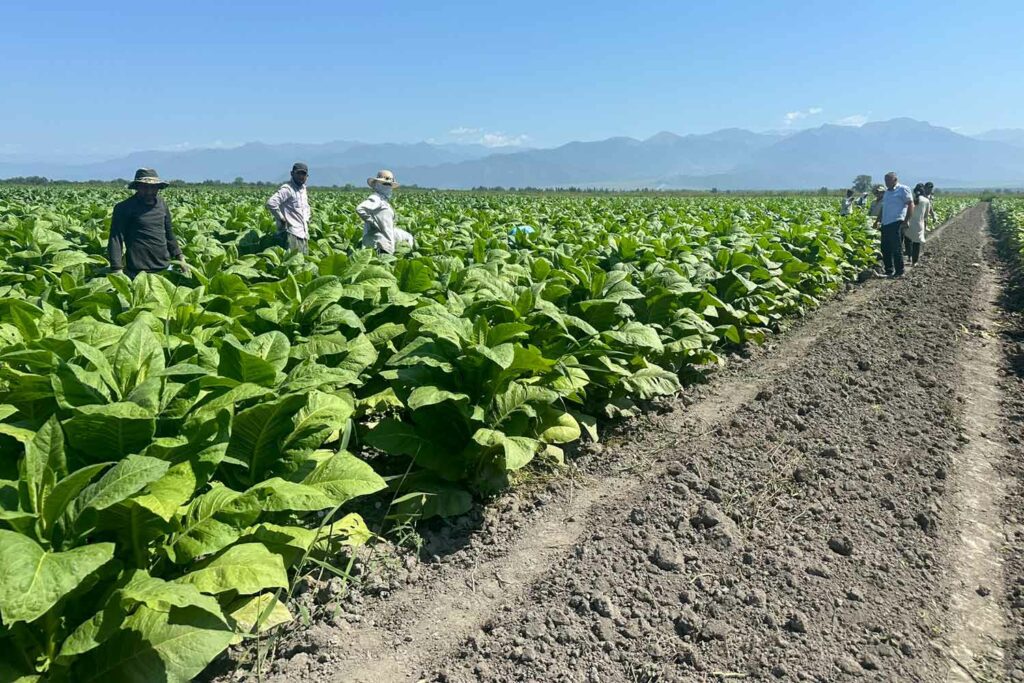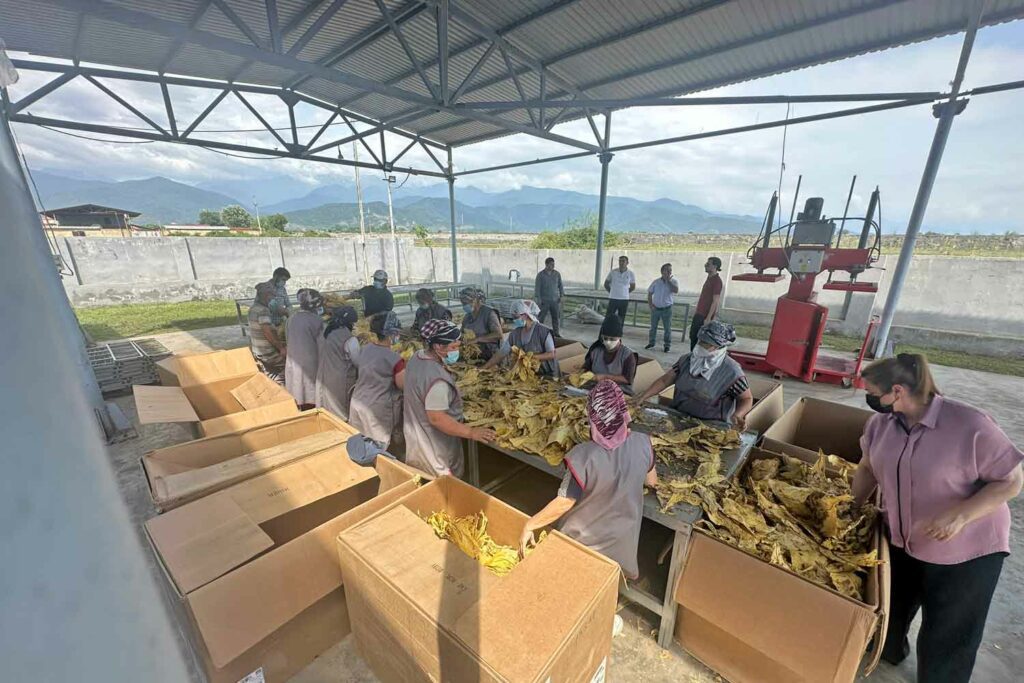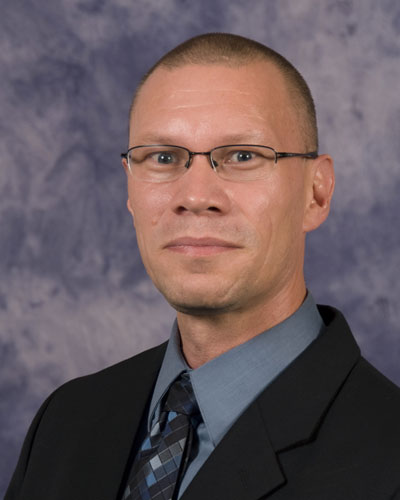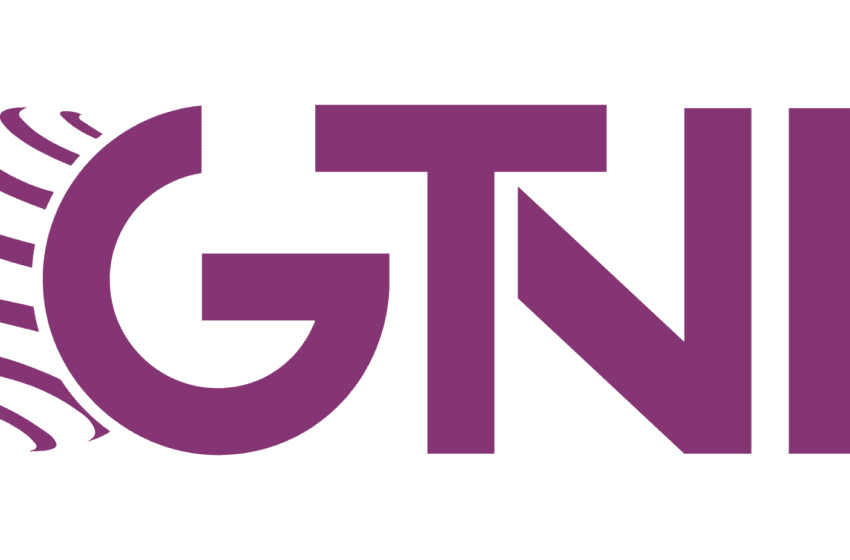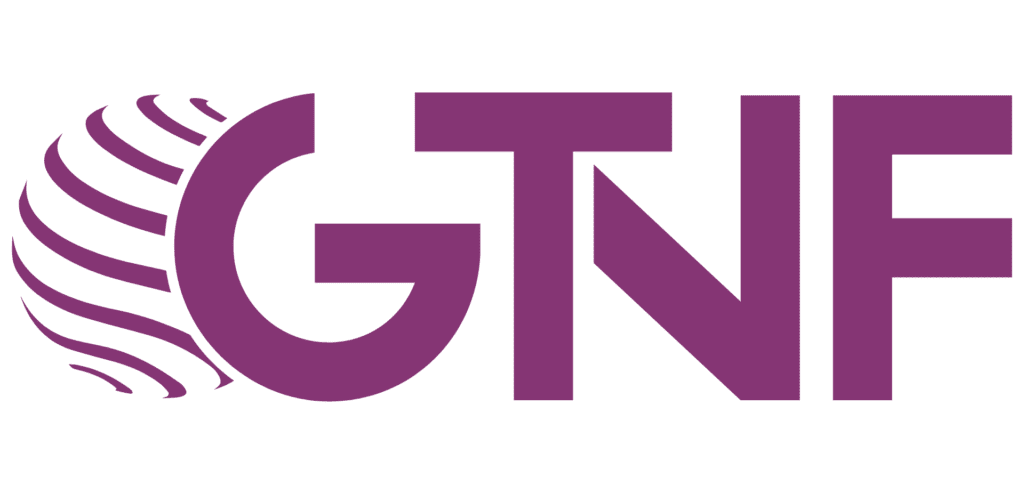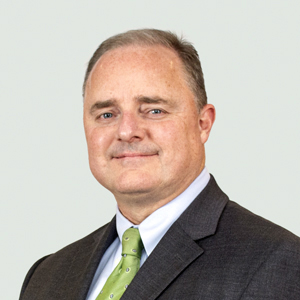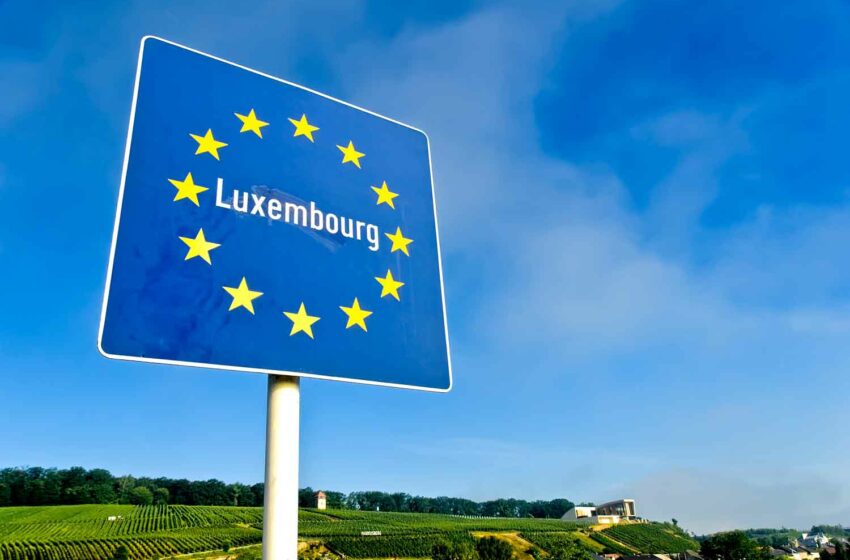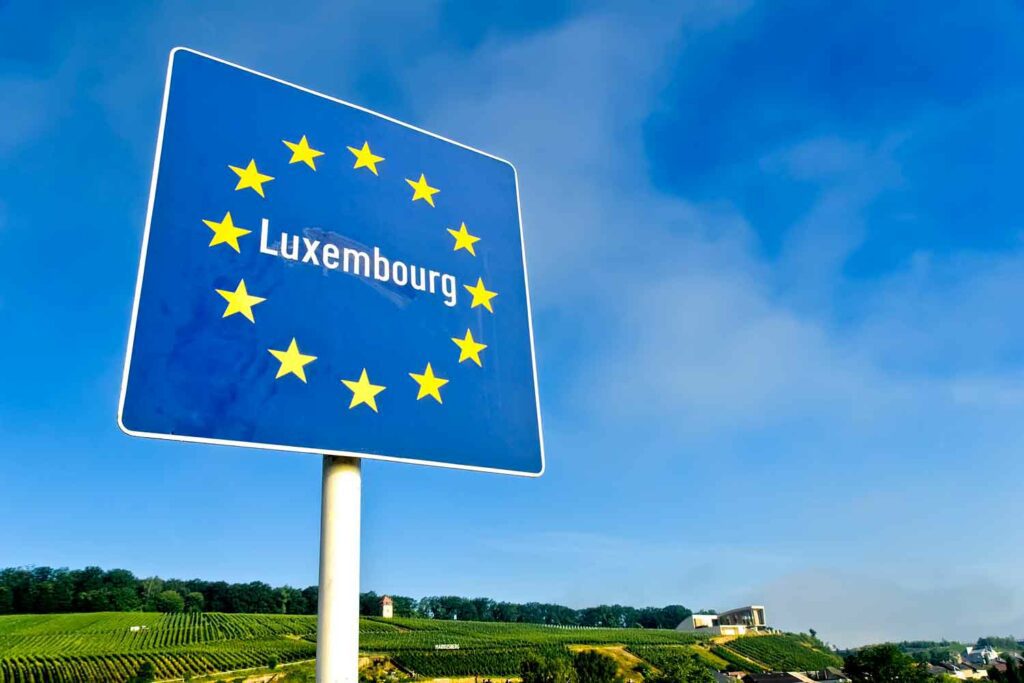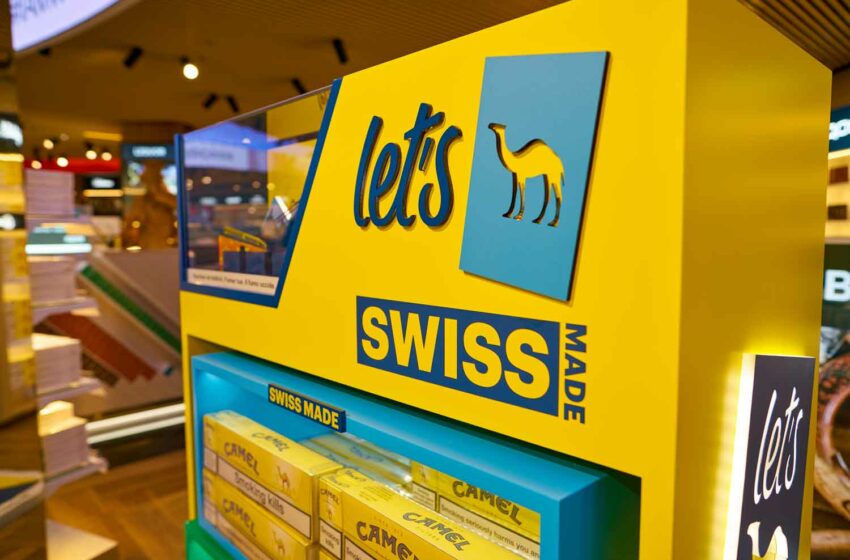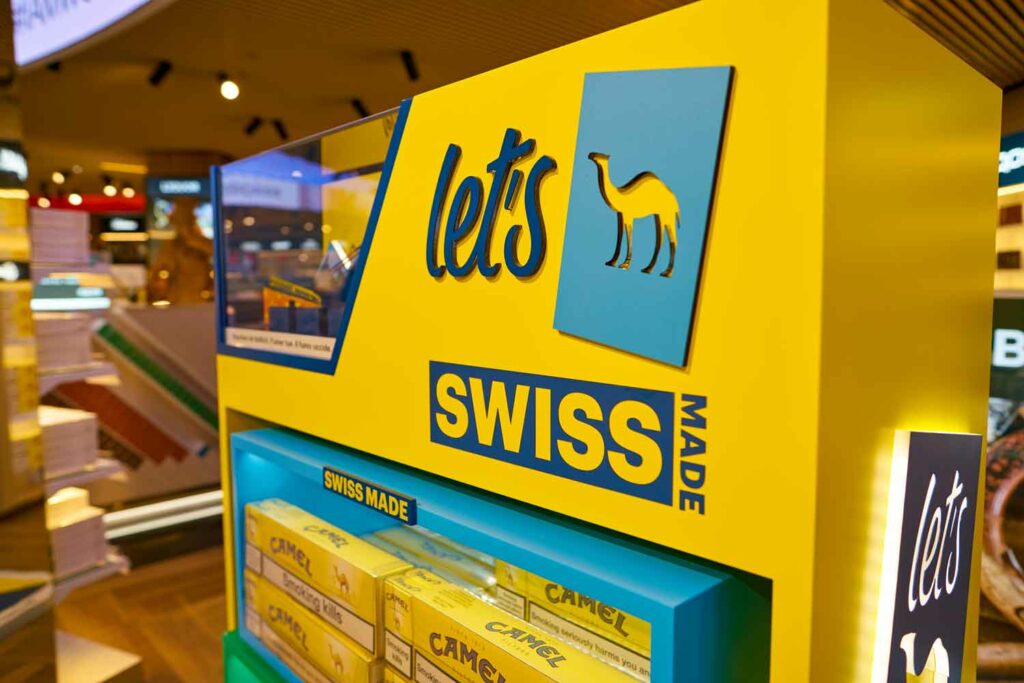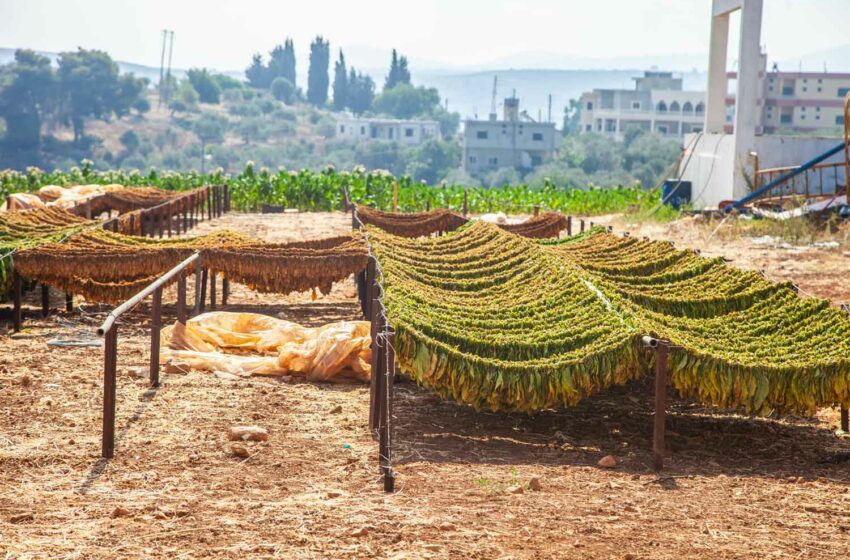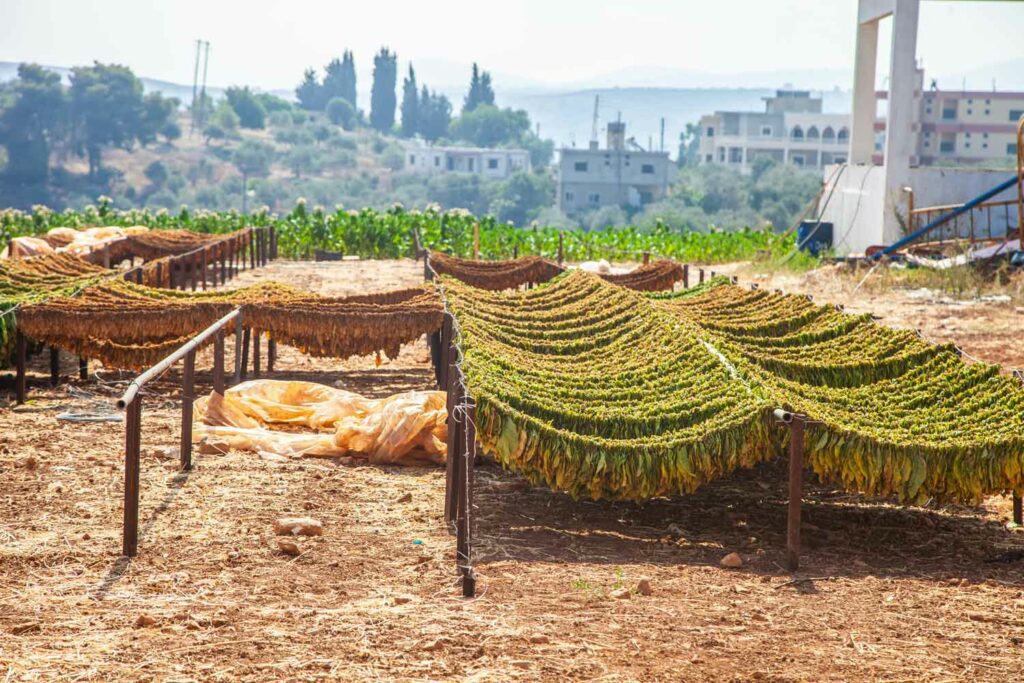The GTNF, scheduled Sept. 24–26 in Athens, is made possible by the generous support of these sponsors.
TR Staff Report
Accorto Regulatory Solutions is a boutique regulatory firm committed to providing unparalleled regulatory and compliance solutions for its global clientele across a range of U.S. Food and Drug Administration-regulated sectors. It specializes in helping small-sized to mid-sized domestic and international companies navigate the regulatory landscape to bring their regulated product concepts to market and ensure ongoing compliance following market authorization.
Its team has extensive experience in the tobacco harm reduction industry, with a proven track record of delivering high-quality, data-driven FDA regulatory submissions for its clients’ nicotine-containing products. Its bespoke multi-phase submission approach reduces overall project time and cost while ensuring compliance with the FDA’s most current thinking. It strives to be a trusted partner in navigating and overcoming regulatory challenges, driving success for its clients in a complex market.
Alliance One International (AOI) is a leading independent leaf tobacco supplier. Working with tobacco farmers in 20 countries, AOI is recognized for producing sustainable and traceable leaf tobacco. The company purchases tobacco on five continents and ships to customers in 90-plus countries.
Through direct contracts, AOI is able to provide agronomic expertise and technical guidance to help growers improve the quality and yield of their crops. The company is dedicated to supporting efforts to address human rights concerns in the tobacco supply chain by using on-farm good agricultural practices assessments to evaluate contracted farmers’ compliance with labor practices. Additionally, the company establishes contract terms and conditions with tobacco farmers related to issues such as forced and child labor, and it conducts social compliance due diligence throughout its tobacco-growing regions.
AOI’s Sentri track-and-trace platform provides transparency into the life cycle of agricultural products by monitoring information and obtaining data related to the growth, cultivation, harvest, processing, formulation, testing and release of individual batches of products. By obtaining data on products at each stage of the supply chain, Sentri permits proactive decision-making for both the company and its customers.
AOI believes that everything it does is to transform people’s lives in order to grow a better world. The company’s global ESG strategy was built off its strong sustainability legacy and achievements over the years. Given its diverse global footprint, AOI is well positioned to have a wide-reaching impact on systemic issues. AOI’s sustainability strategy aligns with the United Nations Sustainable Development Goals, and the company is committed to doing its part to help make those goals a reality.
AlphaScale Technologies develops industrial-grade and high-reliability analog/mixed-signal integrated circuits (ICs) and systems for industrial and consumer markets. The company’s product portfolio includes battery and power management ICs, sensors, LED display drivers, analog-to-digital converters, microprocessors and micro-controller ICs. The company’s solutions focus on addressing the performance, reliability, power and cost challenges. The company’s mission is to be an indispensable provider of highly scalable and highly reliable building blocks for the world’s most demanding electronic manufacturers.
AlphaScale was founded by a team of seasoned IC designers from Silicon Valley with a proven track record of developing leading-edge analog and mixed-signal ICs and systems. The company has R&D and operation facilities in the San Francisco Bay Area and China.
Applied Research and Analysis Co. (ARAC) is a social and behavioral sciences research firm that designs, executes and leads scientifically rigorous, customizable Module 6 studies to support manufacturers, regulatory agencies and industry consulting firms.
ARAC is a fully staffed contract research organization with in-house psychologists, behavioral scientists, statisticians and survey methodologists offering tailored research solutions with unparalleled integrity and an exceptional client experience. In-depth knowledge of U.S. consumer behavior, leveraging in-house internal expertise to deliver quicker, streamlined results to client partners.
Based in the U.S., ARAC focuses on achieving global market success by combining regulatory expertise, consumer understanding and cultural competency expertise applied to international markets. Its triangular approach focuses on government regulations, the consumer and its clients’ business objectives. This approach has proven successful across a variety of studies, including label development and comprehension, human factors/usability, clinical behavioral studies, specifically randomized experimental trials, TPPI and postmarket surveillance systems.
The BAT Group is a leading multi-category consumer goods business that provides tobacco and nicotine products to millions of consumers around the world.
BAT’s purpose is to create “A Better Tomorrow” by building a smokeless world. A smokeless world built on smokeless products, where, ultimately, cigarettes have become a thing of the past.
In order to deliver this, BAT is transforming into a smokeless business, with a target for 50 percent of its revenue to come from smokeless products by 2035.
BAT’s portfolio of smokeless tobacco and nicotine products includes vapor products, heated products and modern oral products, which are collectively termed the “new categories,” as well as traditional oral products.
The business continues to be clear that combustible cigarettes pose serious health risks, and the only way to avoid these risks is not to start or to quit. To help build a smokeless world, BAT encourages those who would otherwise continue to smoke to switch completely to scientifically substantiated smokeless alternatives.
BMJ is the world’s No. 1 partner in specialty paper and packaging by responsibly providing high-value products to its customers. With sustainability goals in mind, the company exceeds the industry’s standard through intimate knowledge of customers’ articulated expectations, service excellence, high productivity, high quality and rapid innovation. It is the partner of choice of many leading players in the industry.
Boegli-Gravures designs, develops and manufactures state-of-the-art embossing tools and solutions for an exacting worldwide clientele. The company’s combination of artistic vision and engineering excellence has brought it recognition as a world leader in high-precision embossing and as an original equipment manufacturer supplier. The secret of Boegli-Gravures’ success lies in the company’s vision and passion for innovation.
FEELM, an atomization technology brand affiliated to Smoore, is a high-quality closed system and disposable solution provider that leverages the world’s leading ceramic coil heating technology, faithful flavor reproduction technology and innovative electronic technology. With the vision of “Atomization makes life better,” FEELM continues to extend the boundaries of atomization technology with
FEELM has won numerous prestigious industry awards, including a Golden Leaf Award and Vapouround’s Award for innovation, and global design awards, such as the IF Design Award, the Red Dot Award and the German National Design Award. Products equipped with FEELM’s ceramic coil, with a total production volume of 3.5 billion, have been sold in more than 50 countries and are widely praised.
Greentank is a business-to-business technology company that specializes in the design, development and manufacturing of precision-made inhalation devices and atomization technology. Greentank’s latest innovation in atomization is called Quantum Vape, which replaces cotton wick and ceramic heating elements with a state-of-the-art patented Heating Chip (see “Heated Breakthrough,” Tobacco Reporter, June 2024).
Greentank believes the Heating Chip outperforms all other leading atomization products. For example, it performs better on key safety metrics, such as harmful and potentially harmful constituents and heavy metal testing, than other leading technologies in the market. It also produces superior flavor and a consistent consumer experience.
The company has won multiple industry accolades and honors, including a Red Dot Design Award and Independent’s Vape Tank and Single-Use Vaporizer of the Year distinctions.
Founded in 2009, Hangsen International Group is a world-leading supplier of e-liquid solutions integrating R&D, manufacturing, sales and services. Since its establishment, Hangsen has been committed to producing safe and reliable e-liquid products and solutions for the global e-cigarette industry.
Headquartered in Shenzhen, China, Hangsen has offices and R&D centers in many places around the world. Its business covers more than 80 countries and regions, and it has established a complete global supply chain system. Hangsen also has a production base in Poland.
The domestic manufacturing center has 6,000 square meters of 100,000-class dust-free workshops, covering a total area of more than 30,000 square meters. It has passed ISO9001, GMP, HACCP, CNAS and other international authoritative certifications. Hangsen can provide a complete supply chain solution for the e-cigarette industry, and the service scope includes design, research and development, production, compliance testing, after-sales and other links.
As the pioneer of e-cigarette technology, Hangsen has obtained more than 300 industrial technology patents and intellectual property rights.
The Haypp Group is focused on the global transition from smoking to reduced-risk nicotine product alternatives, especially nicotine pouches. Originating in Scandinavia, the group has extensive experience in the pioneering smoke-free markets of Sweden and Norway and is a leader in the e-commerce sector. The Haypp Group is present in seven countries, where it served more than 1 million active consumers with eleven e-commerce brands in the 12 months to June 2024.
Imperial Brands is a global consumer organization operating in more than 100 markets and the world’s fourth-largest international tobacco and nicotine company. Its brands include JPS, Gauloises and Davidoff cigarettes, Blu vapes, the Pulze and iD heated-tobacco systems, and Zone oral nicotine pouches. In the U.S., the company’s ITG Brands subsidiary offers a broad portfolio of cigarette and mass-market cigar brands, including Winston and Backwoods.
Driven by insights and data, Imperial Brands seeks to meet the expectations of adult smokers by putting the consumer at the center of everything it does. The business is also refining its ways of working and its culture to foster a strong challenger mindset among its 25,000 employees worldwide.
Japan Tobacco International (JTI) was formed in 1999 when its parent company, JT Group, acquired the non-U.S. operations of RJR Nabisco. Since then, the company has achieved over two decades of growth. As a leading international tobacco company, it sells its products in more than 130 markets and is the global owner of both Winston and Camel, the second-largest and third-largest cigarette brands in the world, respectively. JTI’s other global brands include Mevius and LD. JTI is also a major player in the reduced-risk products category with its heated-tobacco brand Ploom, its e-cigarette brand Logic and its Nordic Spirit nicotine pouches.
Creating fulfilling moments. Creating a better future. This is JTI’s purpose; what inspires every single one of its employees. JTI is committed to serving the needs and demands of its adult consumers, supporting the communities it operates in and making its business not only the fastest growing of its kind but also the most innovative and sustainably run.
Today, JTI has more than 46,000 employees driving its success all over the world. Headquartered in Geneva, Switzerland, it was awarded Global Top Employer for the 10th consecutive year in 2024.
Juul Labs is on a mission to transition the world’s billion adult smokers away from combustible cigarettes, eliminate their use and combat underage usage of its products. The company believes that vapor products can offer adult smokers an alternative to combustible cigarettes and, in so doing, reduce the harm associated with tobacco.
Körber is an international technology group with more than 12,000 employees at over 100 locations worldwide. In its Digital, Pharma, Supply Chain and Technologies business areas, the Körber Group offers products, solutions and services that inspire. The Körber business area Technologies develops customized solutions in the areas of machinery, equipment, software, measuring instruments, flavors and services with a focus on the tobacco, food and beverage industries. Beyond this, its range of offerings includes innovative concepts for battery cell production. With its 25 global production, sales and service locations, the company sees itself as a strategic partner to its customers. Always keeping their goals in mind, the company delivers and integrates outperforming technologies with passion, precision and performance to help them reach their full potential.
As part of Certified Group, Labstat is committed to delivering high-quality technical solutions that its customers can feel confident in—on time, every time—“so the world can trust in what it consumes.” As one of the world’s largest independent testing laboratories, Labstat specializes in analytical chemistry, in vitro toxicology, microbiology, method development and customized technical services for global clients in the tobacco, nicotine, cannabis, hemp and natural health product categories.
Reynolds American Inc. (RAI) is a wholly owned subsidiary of the BAT Group and the U.S. parent company of R.J. Reynolds Tobacco Co., Santa Fe Natural Tobacco Co., American Snuff Co., R.J. Reynolds Vapor Co., and Modoral Brands. RAI’s vision is to build “A Better Tomorrow” by reducing the health impact of its business through offering a greater choice of innovative products for adult tobacco consumers.
Founded in 2009, Smoore is a global leader in atomization technology solutions, covering reduced-risk products, medicinal, special-purpose vaping devices and beauty atomization technologies.
Continually investing in R&D and leading in manufacturing capacity, Smoore has nine technology research centers worldwide, and its products are available in more than 100 countries and regions.
With a focus on interdisciplinary atomization research and a diverse product portfolio, Smoore is committed to becoming an advanced platform with the aspiration to make life better.
SWM International is a leading global provider of highly engineered fine papers, with a deep expertise in natural fiber-based solutions. The company has historically provided solutions for conventional cigarettes, rolling papers, tubes, machine-made cigars and cigarillos as a partner of the tobacco industry.
Recently, significant investments have been made in next-generation product categories, such as heated-tobacco products, modern oral and recreational cannabis applications. SWM’s unmatched product and capability portfolio and expert service offerings cater to both the combustible and the smokeless markets.
Driven by innovation, SWM focuses on accelerating the transition toward safer and more sustainable solutions across the industry.
Global brands across industries rely on Systech to help them achieve compliance, combat counterfeiting and detect diversion. Systech partners with electronic nicotine-delivery system companies to prevent youth usage with age-gating and root out illicit products.
Systech provides digital traceability and authentication solutions that deliver essential product data, ensure digital connectivity and enable real-time insights across supply chains. With decades of experience in highly regulated industries such as pharmaceuticals and medical devices, Systech delivers solutions that customers trust to bring billions of critical products to the market safely.
Tamarind Intelligence provides essential guidance and data-based strategic insights to professionals in fast-moving sectors focusing on consumer-facing products. The areas its selects to cover are in opaque regulatory environments and difficult policy areas where businesses need to be on top of industry developments to make informed decisions and optimize their strategy.
Operating since 2014, the company provides the most accurate information available through consolidated, consistent methodology and research. Its team of lawyers, economists and journalists has long-term expertise in these markets, enabling the company to provide relevant and actionable guidance to its clients. Since the company is independent from the sectors it covers, it gives its clients access to objective analysis often not available to other industry participants.
Founded in 1975 in Maryland, Tobacco Technology Inc. (TTI) develops customized flavors and casings for smoking products, including cigarettes, water pipe, snuff, snus, chew, kretek, RYO, pipe tobaccos, e-liquids and white nicotine pouches. TTI also offers consulting services to facilitate flavor, process and product development.
E-LiquiTech (ELT), a TTI subsidiary established in 2016, is dedicated to the development and manufacturing of the highest quality e-liquids in addition to offering both bottle and cartomizer filling services. ELT is also the exclusive global distributor to the tobacco industry for Zanoprima, a research-driven, innovation-led life sciences company, offering SyNic high-purity synthetic (S)-nicotine in pure, bitartrate and polacrilex resin form.
TTI Flavors is its manufacturing facility in Assisi, Italy, making TTI products for the EU and Middle Eastern markets.
In 2022, TTI established Emerald Green Technology (EGT). With the rise of the emergent cannabinoid marketplace, EGT was born as a natural extension of TTI’s family of flavor companies. It offers a vast array of cannabinoid flavor profiles for CBD and hemp products. Infinite cannabinoid possibilities—if you can imagine it, EGT can create it!
Universal Corp. is a global agricultural company with over 100 years of experience supplying premium ingredients and innovative solutions to meet its customers’ evolving needs and precise specifications. Through its diverse network of farmers and partners across 30 countries on five continents and its commitment to sustainability, the company is a trusted provider of high-quality, traceable products. It leverages its extensive supply chain expertise and state-of-the-art agri-product capabilities to provide a range of products and services designed to drive efficiency and deliver value to its customers.
Founded in 2016 and headquartered in Shenzhen, China, Zinwi Biotech Co. is a high-tech company that specializes in providing integrated solutions, including research, production, sales and services, to global e-cigarette manufacturers and brands. Today, Zinwi Biotech is one of the world’s leading e-liquid companies owing to its strong research and development, strict quality control procedures, stable product quality and large client network.
With innovation at its core, Zinwi Biotech focuses heavily on product research and development. In addition, it focuses on reduced harm technology innovation and application. In 2020, Zinwi Biotech established its Atomization Technology Research Center focused on breaking technological barriers and obtaining patents.
In terms of production and quality control, Zinwi Biotech has gained a number of certificates, including the National CNAS Laboratory Certification, ISO9001, ISO14001 and ISO45001, along with the American GMP Certification. Its products are sold through the network of clients to many countries and regions in Europe, America and the Middle East and have been unanimously recognized by more than 300 brands.
